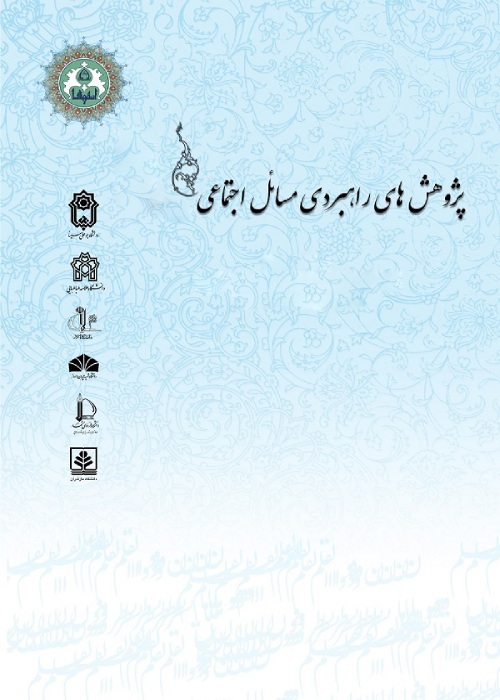A Qualitative Study of the Causes and Context of Non-participation in Empowerment Plans among Women-headed Households
Empowerment is one of the important goals in the social work practice. According to this goals, most social work interventions involve populations that are the least powerful groups or have little social resources. One of these social groups that their empowerment can empower family members are women-headed households. They are not satisfied with their lives and have little trust to relatives and community. They also receive a little support from the society and have many responsibilities in life. As women-headed households live individually and socially under discriminatory and powerless conditions, thus empowering them is the most important practice for social workers. Because of these, many social work organizations consider empowerment plans to help women-headed households. But these plans are not always welcomed by women for achieving social and economic goals. Accordingly, this qualitative study was conducted to investigating the causes and context of non-participation of women-headed households in empowerment plans.
This study is a qualitative study based on grounded theory. The field of study was the women-headed households who received support services by Social Welfare Organization of Yazd. Therefore, 30 women-headed households were selected by purposeful sampling. The women who could be empowered physically and mentally, were interviewed during 40 to 70 minutes, and before conversation, the purposes of investigations were explained for the participants. Data were collected using semi-structured interview and were analyzed by theoretical coding method which includes open coding, axial coding, and selective coding. In this study, the validation criteria of qualitative research include credibility, dependability, confirmability, and transferability which were used to test the trustworthiness and validity of the data and the processes of collecting them.
The participants of the study were 30 women with the age range from 30 to 45 years old. Sixteen women were working in a job and 21 women had educated lower than the diploma. After the first step of coding, 29 primary codes were collected and categorized into seven main categories including lack of need feelings, illness, reluctance, compulsion to stay at home, obligation to work, the difficulty of getting loan, and cost of distance and fear of failure. Finally, based on data analysis and participants' experiences of empowerment plans, discouragement from condition emerged as a central phenomenon in this study. In other words, women-headed households, because of the pressures of life and learned helplessness, were in a state of discouragement from situation. They had little hope for empowerment plans success provided by Social Welfare Organization. They also felt that this plan would not be able to improve their living conditions. The results of this study indicated that, disregarding the physical, psychological, and family conditions, interests and abilities of female-headed households, as well as quality of work and empowerment programs, can decrease their participation in empowerment plans. As a result, successful implementation of empowerment plans for the women-headed households requires attention to women's situations and abilities and to train them to attend and participate in these plans. Based on the findings of study it is suggested that physical characteristics, psychological characteristics (such as the amount of interest, motivation and talent, risk-taking and fear of failure, hope, self-esteem) and family situation (such as having sub-teen children, family support and leisure time) for women-headed households should be considered in empowerment plans. Also, continuous and appropriate training should be provided for women-headed households according to their needs, physical and psychological characteristics and the types of empowerment plans. It is recommended that women-supporting organizations facilitate the process of receiving banking facilities and financial aids. These institutions should focus more on home-based jobs and businesses to empowering women-headed households. Finally, it is necessary that the advocators of women-headed households target and plan for psychological and social empowerment, while they focus on economic empowerment.
- حق عضویت دریافتی صرف حمایت از نشریات عضو و نگهداری، تکمیل و توسعه مگیران میشود.
- پرداخت حق اشتراک و دانلود مقالات اجازه بازنشر آن در سایر رسانههای چاپی و دیجیتال را به کاربر نمیدهد.



